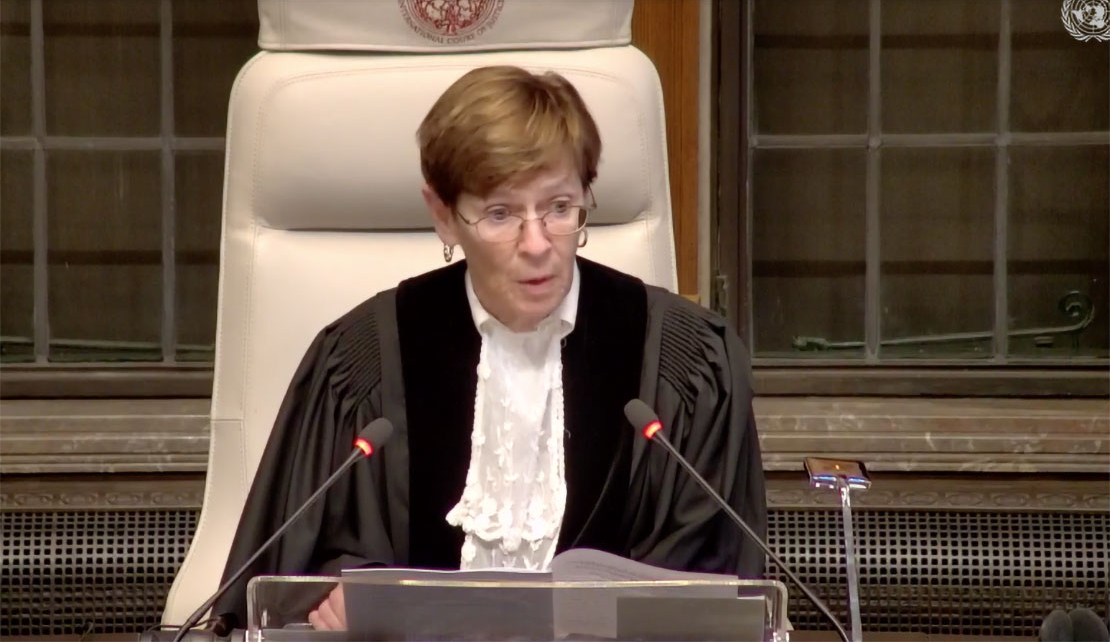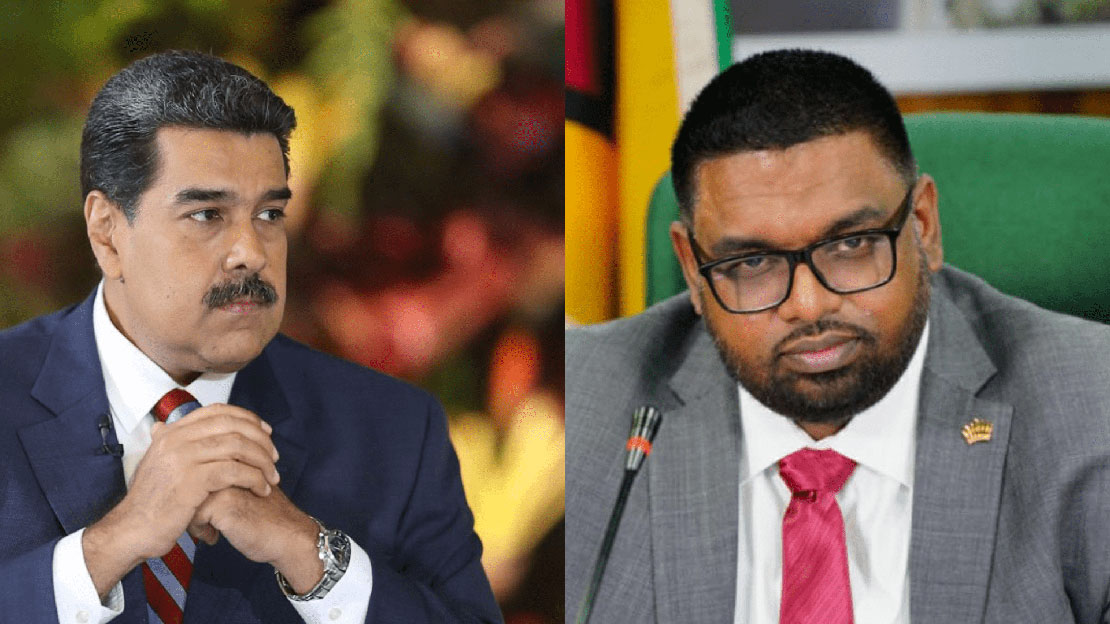World Court Rules: Venezuela must take no action to seize Essequibo

THE HAGUE, Netherlands. December 1, 2023 - The International Court of Justice on Friday ruled that Venezuela must not take any action to seize Guyana’s county of Essequibo based on its December 3 referendum.
Before handing down the orders, President of the ICJ, Justice Joan E. Donoghue, said the World Court, in arriving at its decision, found that there were sufficient grounds to grant the provisional measures sought by Guyana, having established in 2020 that it has jurisdiction to preside over the territorial case.
The President of the ICJ reasoned that while at this stage of the proceedings the Court is not called upon to determine definitively whether the rights which Guyana seeks to protect exist, it considers that Guyana has sovereign rights over the Essequibo Region and that in the absence of such provisional measures, irreparable prejudice could be caused to that right, which is the subject of judicial proceedings also before the Court.

The court issued the following provisional measures, which it said that under Article 41 of the statute, have binding effect and thus create international legal obligations for any party to whom those provisional measures are addressed.
- unanimously pending a final decision in the case, the Bolivarian republic of Venezuela shall refrain from taking any action, which would modify the situation that currently prevails in the territory in dispute, whereby the Cooperative Republic of Guyana administers and exercises control over that area
- unanimously both parties shall refrain from any action which might aggravate or extend the dispute before the court or make it more difficult to resolve
The ICJ said it was necessary, pending its final decision for the court to indicate certain measures in order to “protect the plausible right claimed by Guyana, as identified by the court.”
In arriving at its decision, the court considered Venezuela’s stated position in its oral arguments that “it will not turn its back on what the people decide in the referendum” and that Venezuelan President Nicolas Maduro had said that the popular vote would for the first time be the means to take a collective decision as a country.
“Other official statements suggest that Venezuela is taking steps with a view towards acquiring control over and administering the territory in dispute,” the court said, citing as late as November 6, 2023 the Minister of Defense of Venezuela, General Vladimir Padrino Lopez appealing for combat with reference to Essequibo.
Guyana had also noted that Venezuelan military officials announced that Venezuela is taking concrete measures to build an airstrip, to serve as “a logistical support point for the lake. Integral Development of the Essequibo.”
The court concluded that from all of the considerations, the conditions were present to issue provisional measures and agreed with Guyana’s arguments that if Venezuela went ahead with the outcome of the referendum, that could cause “irreparable” harm.

The court further considers that Venezuela’s expressed readiness to take action with regard to the territory in dispute in these proceedings at any moment, following the referendums scheduled for 3 December 2023 demonstrates that there is urgency in the sense that there’s a real and imminent risk of irreparable prejudice to Guyana is plausible right before the court gives its final decision,” the ICJ ruled.
Guyana sought provisional measures from the ICJ after the Venezuelan government of Nicolas Maduro decided to call a referendum for Venezuelans to answer five questions including one that seeks approval for the establishment of Essequibo as a state of Venezuela and for the issuance of citizenship and national identification cards to people in that 160,000 square kilometre county.
Further, the referendum seeks a rubber stamp of the Maduro government’s position that the ICJ could not settle the controversy over the 1899 Arbitrary Arbitral Tribunal Award that represents the full, perfect and final settlement of the boundary between the two neighbouring South American nations.
The ICJ, in its decision, emphasizes that the question of the validity of the 1899 Award and the related question of the definitive settlement of the land boundary dispute between Guyana and Venezuela are matters for the court to decide at the merits stage.
The court recalled that Guyana has requested to indicate measures aimed at ensuring the non-aggravation of the dispute with Venezuela, when indicating provisional measures for the purpose of reserving specific rights.
